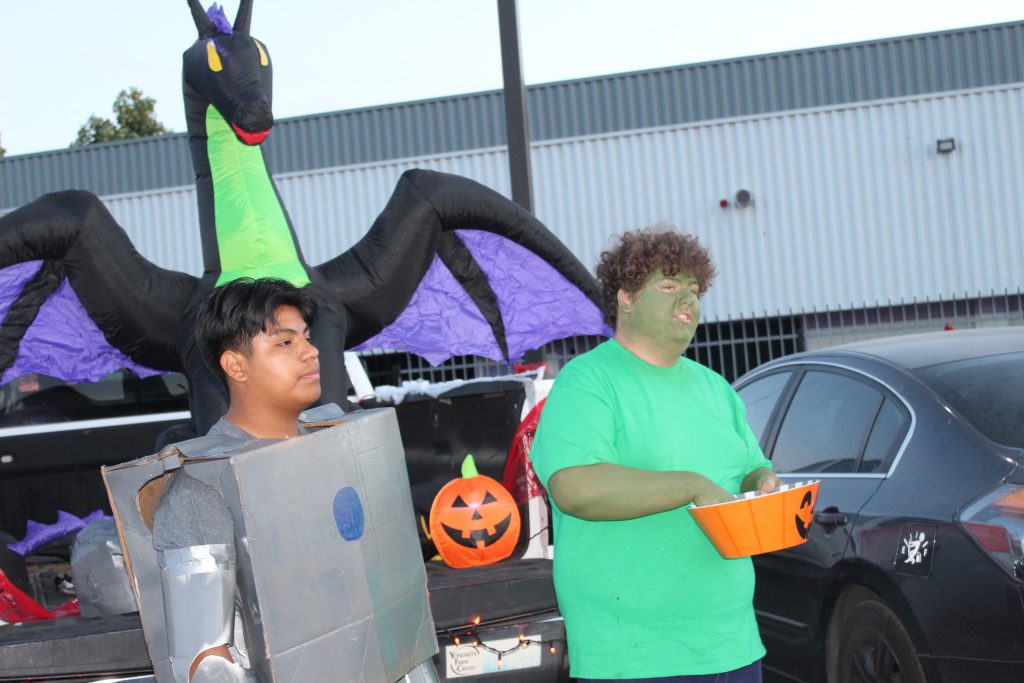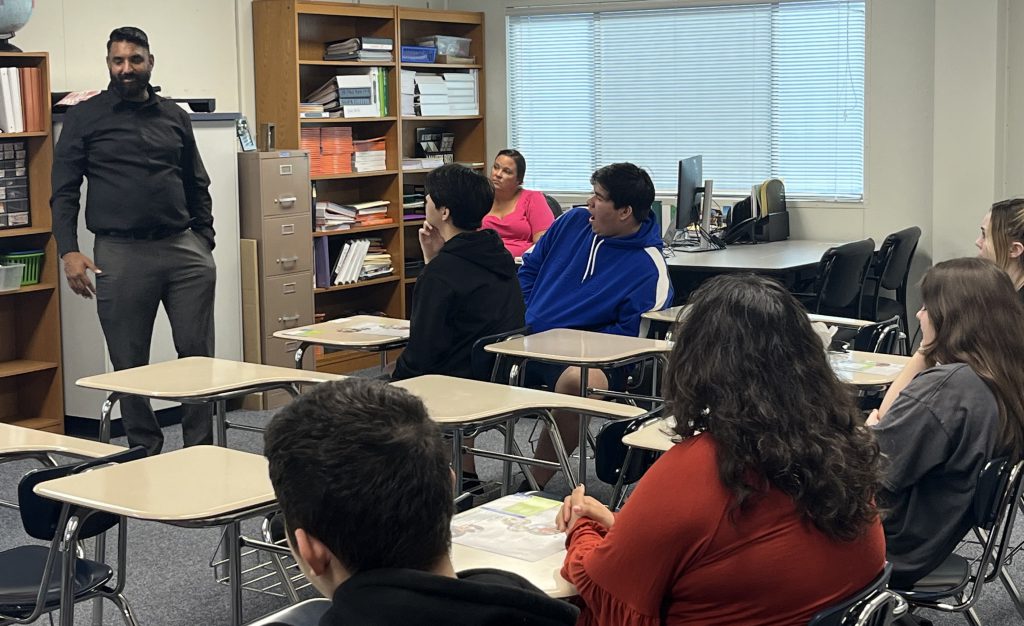Even as this football season ended in disappointing fashion with just two victories in nine games, Denair High football coach Anthony Armas already had one eye on the future.
After four consecutive years of meager turnout at the varsity level, Armas finally can see light at the end of the tunnel. He could have as many as 16 returning players from this year’s 19-man varsity roster, fortified by a group of ascending sophomores who are used to winning.
And while more players aren’t a guarantee of more success on the field, it certainly would be a step forward for the Coyotes, who had as few as 12 varsity players healthy during parts of the just-completed season.
“I think our future is bright,” Armas said. “We were a young team. We only had three seniors. The numbers were rough and then we got bitten by injury bug. … It seems like we always have low numbers, but his year and 2016 really stand out. We made playoffs that year, mainly because we managed to dodge the injury bug.”
It takes 11 players at a time to play football. There were many instances this season when Armas and his assistant coaches far outnumbered the Coyotes’ extra players on the sideline. Because of their small roster, players moved from offense to defense and back again, with rarely a break to catch their breath. Having to play both ways not only put them at a major disadvantage against their opponents, it also increased the likelihood of injury or sustaining more of the bumps and bruises all football players endure.
Hopefully, that won’t be the case next season. Armas’ optimistic vision of the future is buoyed by the performance of this year’s junior varsity, which compiled an 8-1-1 record.
“And we had three sophomores on the varsity, so the JVs could have been even better,” said Armas, who expects to have as many as 30 varsity players next year.
“We’ll have a little bit of everything – some size, some speed,” Armas said. “We might actually get to platoon a little bit and have enough bodies to rest people. The numbers looking good for next few years, as far looking at the classes we have right now and the classes coming up.”
Other than a shortage of players, what else the 2023 season be remembered for? Maybe the first game against Big Valley Christian on Aug. 19 at Jack Lytton Stadium, which was called at halftime because of lightning strikes in the area with Big Valley ahead 14-6.
“I still can’t believe that’s what happened,” Armas said.
The next week, the varsity didn’t get to play because the scheduled opponent, Bret Harte, cancelled its season at the last minute. A win over Riverbank followed, but the Coyotes were undermanned during the entire Southern League schedule, managing only one victory against winless Mariposa.
Just like that, a season that started in the summer heat was over ever before Halloween.
“My coaches and I talked about that,” Armas joked. “We always complain that the season’s over now before we get to wear our cold weather gear.”
Next year, the league will look markedly different. Powerhouses Ripon Christian and Orestimba have been moved out, replaced by Stone Ridge Christian of Merced. The realignment – coupled with a larger roster – gives Armas and his players added hope.
“Lot of kids are eager to get rolling again,” Armas said. “We’re going to give them a little break, then hit the weight room.”





